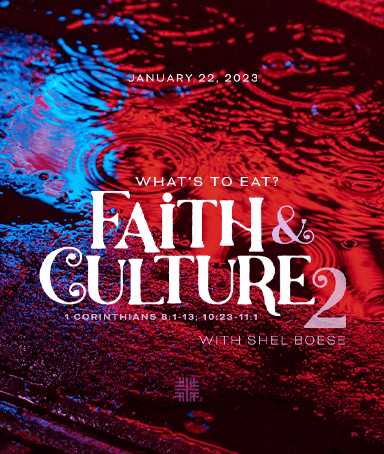TEACHING
|
SUNDAY, JANUARY 22, 2023
10:30 AM (kids! + communion) WHAT'S TO EAT? Faith & Culture 2 with Shel Boese 1 Corinthians 8:1-13; 10:23-11:1 It's impossible not to be located in a culture (or several)—this being both good and messy. When we say "yes" to Jesus, we bring our culture(s) with us to him. How do we know what to honour from our culture(s), what to modify with Jesus' teaching, and what to turn away from? The Early church wrestled with this and it blew up around food. Food becomes a teaching tool for all things we bring from our cultures. Join us as we celebrate and wrestle with these important experiences.
The Question:
1. The Incarnation informs this Early church (See the New Testament!) re-reads Judaism through Jesus as Messiah. Coming up with new understandings that Jews who do not see Jesus as Messiah and really conservative and liberal Biblical scholars would not. God’s and flesh men involved both a crossing of boundaries and an allowance of boundaries to be crossed. Irenaeus points out that the way Jesus redeems our history is by being a part of every person’s history at every stage of their lives, from birth to infancy to adulthood to death. This is what irony is called “recapitulation,” or a retelling of history through the act of incarnation, or in fleshman. Jesus’ story becomes the story of all humanity. His story is ours. -Phuc Luu, Jesus of the East: Reclaiming the Gospel for the Wounded 2. Paul’s Mission to expand the church informs this.
Answers for Pilgrim?
For Discussion and Reflection
|


